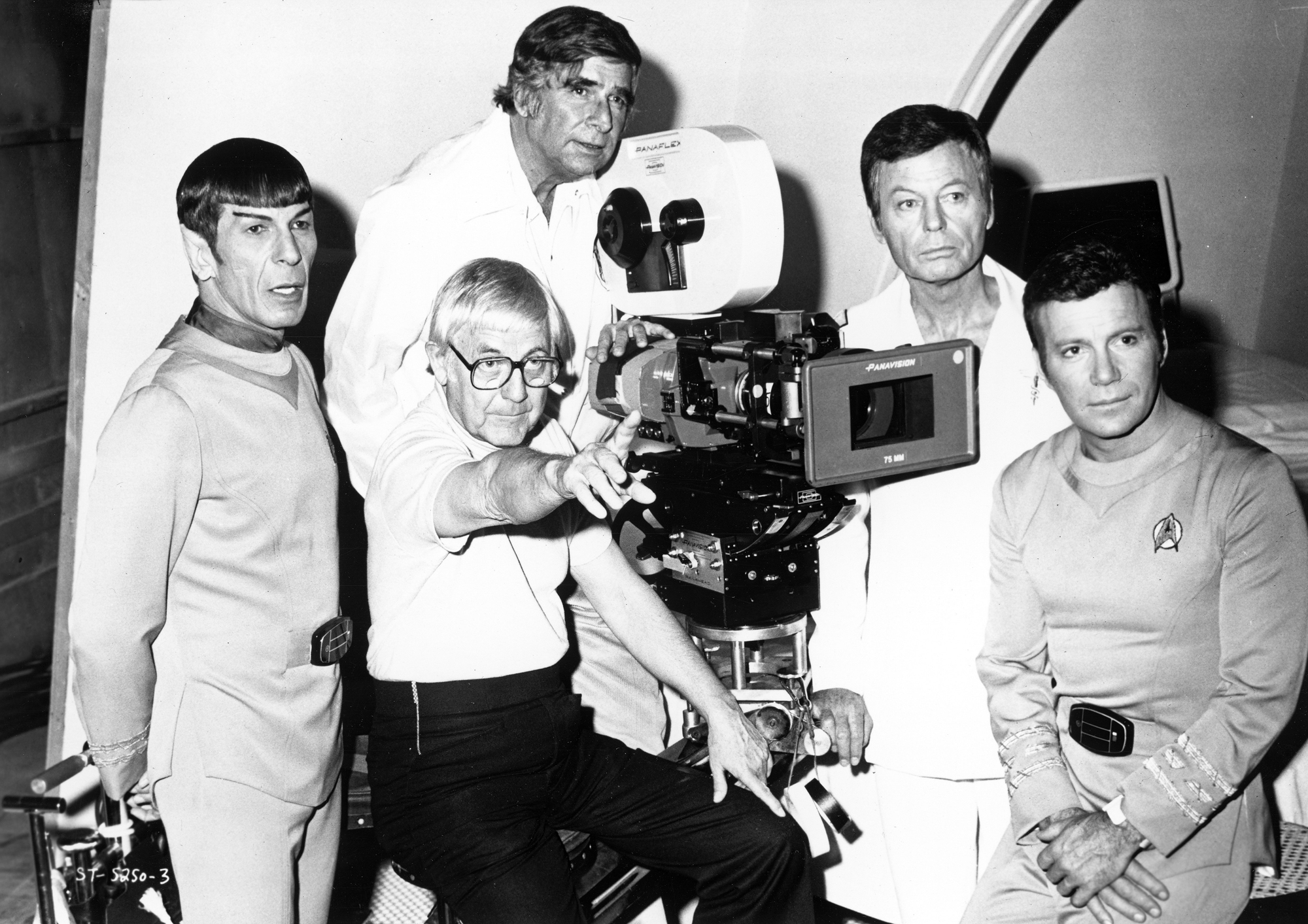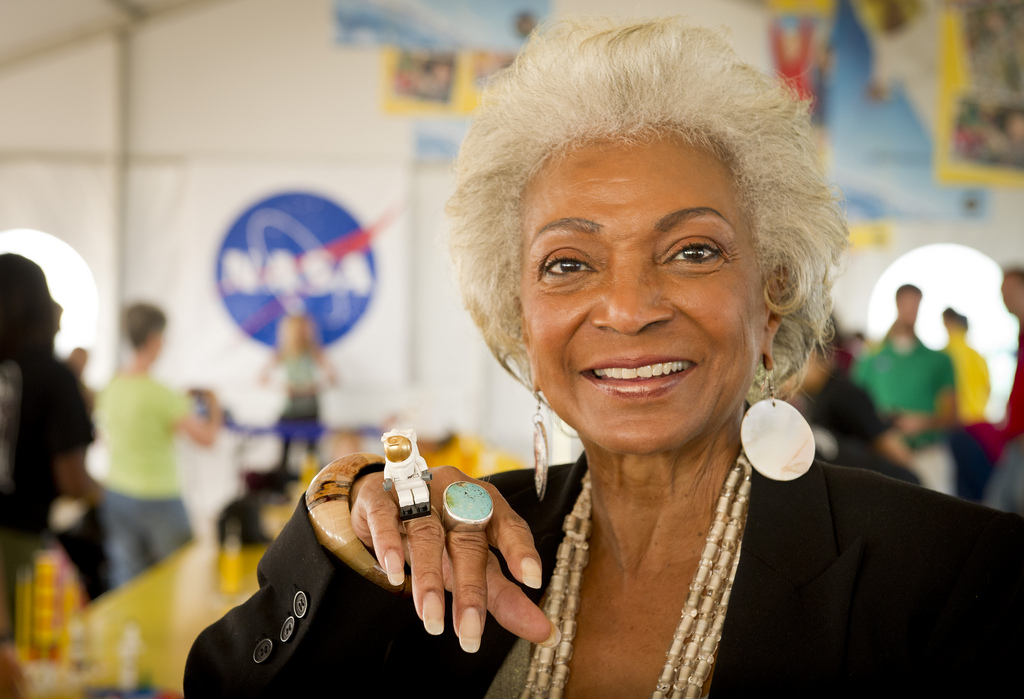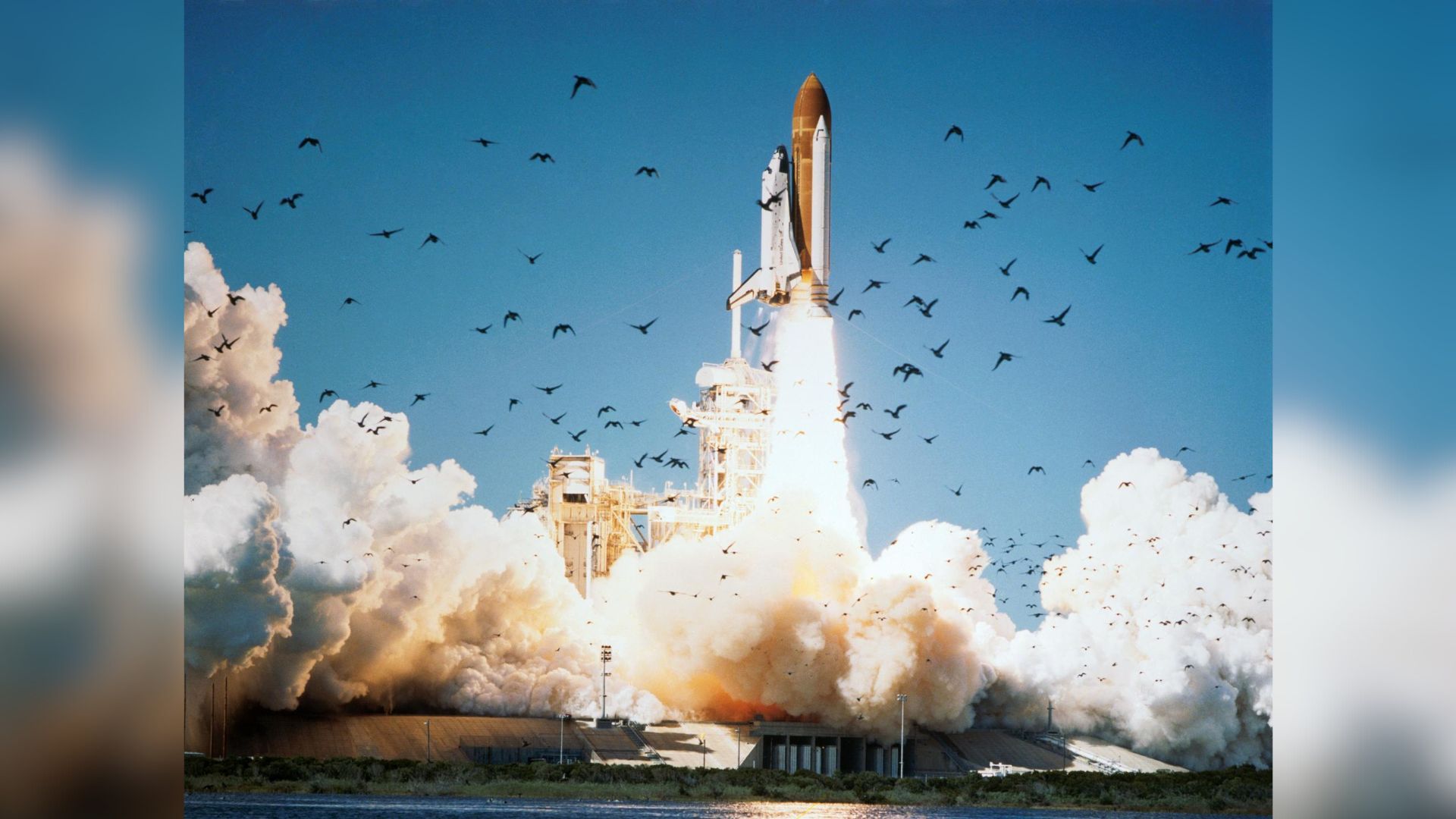Watch NASA and 'Star Trek' celebrate Trek creator Gene Roddenberry's legacy today
It's the late Gene Roddenberry's 100th birthday.
Gene Roddenberry, the man who helped "Star Trek" live long and prosper also promoted diversity, sparking NASA astronauts to team up with Trek actors today (Aug. 19) to celebrate the 100th anniversary of the Trek creator's birth. Here's how you can watch live.
Roddenberry created the popular franchise, which began airing in 1966 with "Star Trek: The Original Series," to include a diversity of starring actors — such as Black female Nichelle Nichols (Nyota Uhura) during U.S. segregation and Russian-American Walter Koenig (Pavel Chekov) at the height of the Cold War. Also notably, Japanese-American actor George Takei (Hikaru Sulu) had been in a U.S. internment camp during the Second World War.
The "Star Trek" creator died in 1991, and NASA plans an event to celebrate Roddenberry's 100th birthday this year. You can watch the livestream today at 2 p.m. EDT (1900 GMT) on NASA Television, the NASA app and NASA social media channels.
Related: The best Star Trek gifts and deals for 2021
"Coinciding with the program, NASA will broadcast into space a 1976 recording of Gene Roddenberry's remarks on diversity and inclusion through the agency’s Deep Space Network of radio antennas," the agency said in a statement.
Thursday's event is the latest in decades of collaboration between NASA and "Star Trek", ranging from a famous astronaut campaign seeking women and Black space travelers to a successful effort to rename a space shuttle prototype after the U.S.S. Enterprise, the famous starship of "Star Trek."
The program will have introductory remarks by NASA Administrator Bill Nelson, then a panel discussion moderated by Rod Roddenberry (son of Gene). "Star Trek" actor Takei will join the panel along with several NASA panelists.
Breaking space news, the latest updates on rocket launches, skywatching events and more!
The NASA participants include astronaut Jonny Kim; Tracy Drain, Europa Clipper flight systems engineer; Hortense Diggs, director of the office of communications and public engagement at NASA’s Kennedy Space Center in Florida; and Swati Mohan, lead for Mars 2020 guidance, navigation, and controls operations at Jet Propulsion Laboratory in California.
Related: Documentary explores 'Star Trek,' Nichelle Nichols and NASA's 1970s astronaut search
The agency is asking "Star Trek" fans to post their Vulcan salutes in social media to celebrate Roddenberry's birthday, using the hashtag #Roddenberry100. (In 2015, several astronauts beamed pictures of themselves using the salute in space shortly after the death of TOS actor Leonard Nimoy, who created the gesture for his character Spock.)
"Star Trek" continues its push into diversity to this day, including introducing the franchise's first transgender and nonbinary characters in 2020. A recent documentary highlighted Nichols' contributions to attracting Black and female astronauts in a 1970s NASA campaign, too.
Both NASA and Roddenberry have occasionally come under criticism for their approaches to diversity; that said, both made efforts to rectify the concerns. Takei, a gay man, said in 2020 he asked Roddenberry to highlight LGBTQ+ figures in "Star Trek" decades ago; Roddenberry at first turned down the opportunity out of fear of advertisers' recrimination and later regretted it, Takei said.
On NASA's side, it was only in recent years that the agency spoke often about the "Hidden Figures", or Black female computer scientists who calculated orbital trajectories for early spacecraft missions (among other duties.) NASA renamed its headquarters after Mary W. Jackson in 2020, celebrating the first Black female engineer employed at the space agency.
The agency was also criticized for waiting until 1983 to fly its first female astronaut, Sally Ride, even after a female aviator group informally called the Mercury 13 stepped forward in the 1960s to offer themselves for astronaut jobs. (Part of the problem stemmed from the fact that the U.S. military, the main career pathway for early astronauts, did not accept females for most roles until the 1970s.)
That said, recent years saw a number of female firsts among the astronaut corps. Mercury 13 aviator Wally Funk also made it to space earlier this year aboard a Blue Origin suborbital flight.
Follow Elizabeth Howell on Twitter @howellspace. Follow us on Twitter @Spacedotcom and on Facebook.

Elizabeth Howell (she/her), Ph.D., was a staff writer in the spaceflight channel between 2022 and 2024 specializing in Canadian space news. She was contributing writer for Space.com for 10 years from 2012 to 2024. Elizabeth's reporting includes multiple exclusives with the White House, leading world coverage about a lost-and-found space tomato on the International Space Station, witnessing five human spaceflight launches on two continents, flying parabolic, working inside a spacesuit, and participating in a simulated Mars mission. Her latest book, "Why Am I Taller?" (ECW Press, 2022) is co-written with astronaut Dave Williams.



